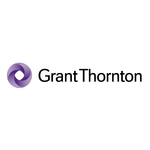ACFE and Grant Thornton release guide for organizations to manage ESG fraud risks

CHICAGO & AUSTIN–(BUSINESS WIRE)–The Association of Certified Fraud Examiners (ACFE), a membership association of more than 90,000 anti-fraud professionals globally, and Grant Thornton LLP, one of America’s largest audit, tax and advisory firms, today released a comprehensive guide titled Managing Fraud Risks in an Evolving ESG Environment.
Environmental, social and governance (ESG) initiatives are some of the most important topics discussed in boardrooms today. However, when ESG programs are not implemented correctly, organizations can quickly find themselves enmeshed in a maelstrom of missteps and negative headlines.
Managing Fraud Risks in an Evolving ESG Environment — which is being released in conjunction with the start of the 33rd Annual ACFE Global Fraud Conference — outlines the potential threat of ESG fraud risks for organizations. The guide also explains how organizations can work with anti-fraud practitioners to shore up their ESG programs and prepare for the future.
“The rise of ESG-focused investing should, on its face, be a movement defined by trust, good governance and accountability,” says Linda Miller, a principal and leader of Grant Thornton’s Fraud & Financial Crimes practice. “But, as with many new trends, the regulatory and reporting frameworks related to ESG are struggling to keep up with the pace of change.”
Without consistent standards, organizations are at greater risk of fraud. At the same time, organizational leaders feel pressured to make commitments and report positive progress toward ESG goals. For example, 40% of major companies have issued a public commitment to reduce emissions. The pressure to achieve those goals will only continue to rise as investors rely more heavily on ESG-related metrics.
In Managing Fraud Risks in an Evolving ESG Environment, Grant Thornton and the ACFE illustrate the need to be intentional about ESG fraud planning as more organizations invest in ESG initiatives. In fact, according to Grant Thornton’s most recent CFO Survey, 31% of senior finance leaders plan to increase investments in ESG in the coming year, while 34% expect to increase their investments in diversity, equity and inclusion (DE&I). While investment in these areas can provide tremendous benefits, that same investment can also introduce new pressures and opportunities for fraudulent activity. To lessen the risk of fraud at companies addressing ESG and DE&I issues, the ACFE-Grant Thornton guide recommends the establishment of ESG accountability measures.
“Organizations should establish ESG frameworks with built-in fraud risk management strategies,” adds Brad Preber, CEO of Grant Thornton. To do so, leaders must keep in mind the three tenets of the fraud triangle: opportunity, pressure and rationalization. Those three conditions allow fraud to thrive. “The frameworks should also address accuracy, completeness and comparability, among other factors,” according to Preber, who has 40 years of experience serving as a forensic accountant and fraud investigator.
The guide goes on to explain Grant Thornton’s ESG fraud taxonomy, which incorporates the ACFE’s Fraud Tree and considers the different aspects of fraud through an ESG lens. It contains four parts:
- Corruption, which includes conflicts of interest, bribery, illegal gratuities and economic extortion
- Asset misappropriation, which includes the larceny and misuse of ESG-related inventory and other assets
- Financial statement fraud, which includes concealed ESG-related liabilities and expenses, overstated ESG-related liabilities and expenses, improper ESG-related asset valuations and improper disclosures
- Nonfinancial reporting fraud, which includes false labeling or advertising, false disclosure or representation, false/disingenuous certification of pledges and failure to disclose or report
According to James Ruotolo, a senior manager in the Fraud & Financial Crimes practice at Grant Thornton, anti-fraud practitioners have a critical role to play in the future of ESG programs.
“Anti-fraud practitioners can help organizations understand internal and external fraud risks,” says Ruotolo. “They can also implement new internal controls to prevent material misrepresentations and fraudulent reporting of ESG metrics, while also helping to protect the company against ESG-related external frauds by unscrupulous suppliers.”
ACFE President and CEO Bruce Dorris sums up the guide simply: “Organizations that follow our guide and take a proactive approach to mitigating their ESG-related fraud risk will have a unique advantage in the marketplace. They will be better protected and prepared to navigate the ever-changing ESG landscape and to tackle complex environmental, social and governance issues head-on.”
Managing Fraud Risks in an Evolving ESG Environment is available for download at www.ACFE.com/ESGReport and www.grantthornton.com/esgfraudreport.
About the ACFE
Founded in 1988 by Dr. Joseph T. Wells, CFE, CPA, the Association of Certified Fraud Examiners (ACFE) is the world’s largest anti-fraud organization. Together with more than 90,000 members, the ACFE works to reduce business fraud worldwide and inspire public confidence in the integrity and objectivity within the profession.
About Grant Thornton LLP
Grant Thornton LLP (Grant Thornton) is one of America’s largest audit, tax and advisory firms — and the U.S. member firm of the Grant Thornton International Ltd global network. We go beyond the expected to make business more personal and build trust into every result. With revenues of $1.97 billion and 51 offices nationwide, Grant Thornton is a community of more than 9,000 problem solvers who value relationships and are ready to help public and private organizations of all sizes and industries create more confident futures. Because, for us, how we serve matters as much as what we do.
“Grant Thornton” refers to Grant Thornton LLP, the U.S. member firm of Grant Thornton International Ltd (GTIL). GTIL and the member firms are not a worldwide partnership. Services are delivered by the member firms. GTIL and its member firms are not agents of, and do not obligate, one another and are not liable for one another’s acts or omissions.
Contacts
Grant Thornton LLP
Adam Bond
T +1 312 602 8332
E adam.bond@us.gt.com
S twitter.com/grantthorntonus
linkd.in/grantthorntonus
Association of Certified Fraud Examiners (ACFE)
Stefanie Hallgren
T +1 512 2768167
E shallgren@acfe.com
